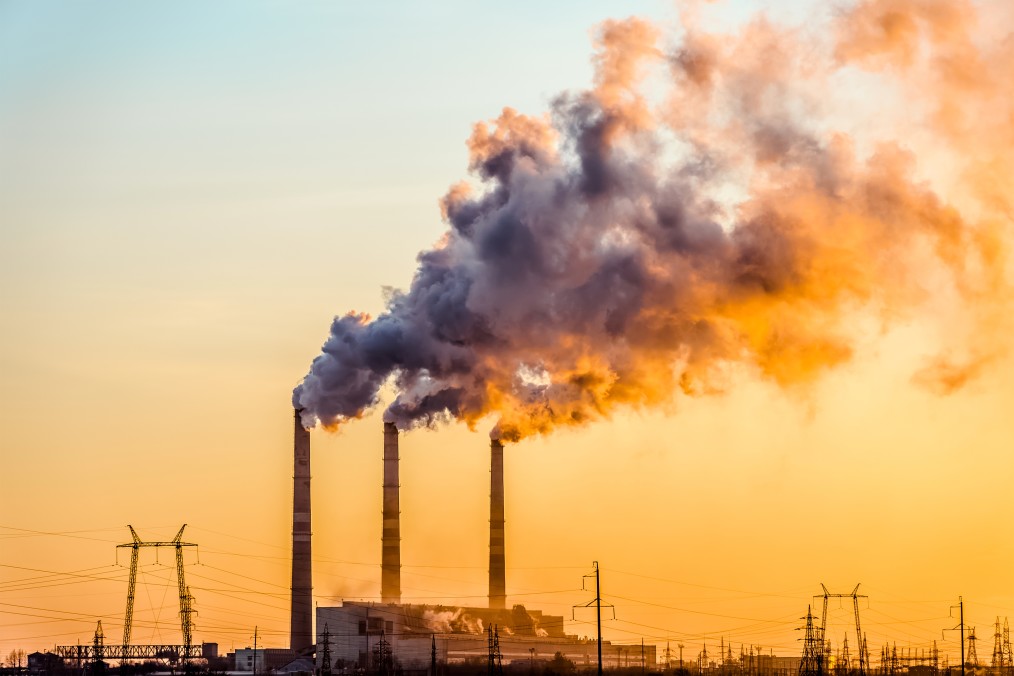But the idea is unpopular with many environmentalists.
These days, pretty much everyone agrees that climate change is real, caused by human behaviour like emitting greenhouse gases, and a huge problem that needs to be stopped in order to protect jobs, property, wellbeing and lives throughout the world. What people don’t agree on is how to stop it. One approach that causes a lot of debate is using carbon taxes. As the name suggests, this is a policy that would see governments charging people for economic actions and purchases that released carbon dioxide into the atmosphere. Comprehensive carbon taxes would therefore increase the cost of doing environmentally-unfriendly things like driving or flying, as well as up the price of most of the stuff you buy.
Most economists are fans of carbon taxes. The Institute of Fiscal Studies (IFS), a well-known economic research organisation, has just released a new report endorsing using one as a linchpin of Britain’s environmental policy. Fans of carbon taxes like that they are simple and efficient, in the economic sense of the word. Economic efficiency means that waste is eliminated and resources are given to those who value them most. How do economists figure out how much we value things? By looking at how much we’re willing to pay for them.
In theory, by making economic actions or goods that involve carbon production much more expensive carbon taxes incentivise people and businesses to only increase their carbon footprint when it’s really necessary and there aren’t any better alternatives. The taxes may therefore nudge factories to invest in more environmentally-friendly machinery, companies to conduct more international business over Zoom, and individuals to turn off the lights when they leave their house. And by adding extra costs to the old way of doing or making things, carbon taxes also create a big commercial incentive for businesses to create new, low-carbon ways of doing and making things. Examples of this type of innovation include electric cars and lab-grown meat, which are attracting more and more interest as concern about climate change grows.
In terms of how the actual financial cost of carbon taxes would be distributed, the rich would end up paying most of the money. That’s because comparatively this group consumes a lot more - they take more flights, have bigger homes to heat, own more stuff, and so on. However, in terms of how much the cost of carbon taxes would impact society, they’re likely to hit poorer people much harder.
The less well-off you are, the less stretch you have in your budget, and the more likely it is you'd have to respond to the increased expenses caused by carbon taxes by either cutting down or completely cutting out your carbon-linked activities and purchases. The most pressing problem would be that that could directly affect poorer people’s ability to survive - say by making it hard for them to buy enough food for their family or to drive to a job. But carbon taxes could also mean taking away from the poorest things that aren’t essential but are important for wellbeing, like foreign holidays. Many would consider that incredibly unfair, not least because poorer people generally have a much smaller carbon footprint than their richer peers.
The IFS report acknowledges this problem with carbon taxes, and suggests the answer is for the government to offer substantial financial support to poorer households in order to ease them through the transition away from fossil fuels. Government support of this kind is usually funded by taxes, so theoretically the proceeds from the carbon tax itself could fund these sort of programs.
Of course, even if this plan was successful, a carbon tax policy still won’t please everyone. For some environmentalists, attempting to solve climate change through economic tools is always going to be a busted flush. For them, insisting on seeing the priceless benefits of a healthy planet through a financial lens means humanity will always underestimate the true, non-money cost of environmental damage... and overestimate their ability to pay their way out of the crisis.
Read our explainer on: putting a price on the planet.

